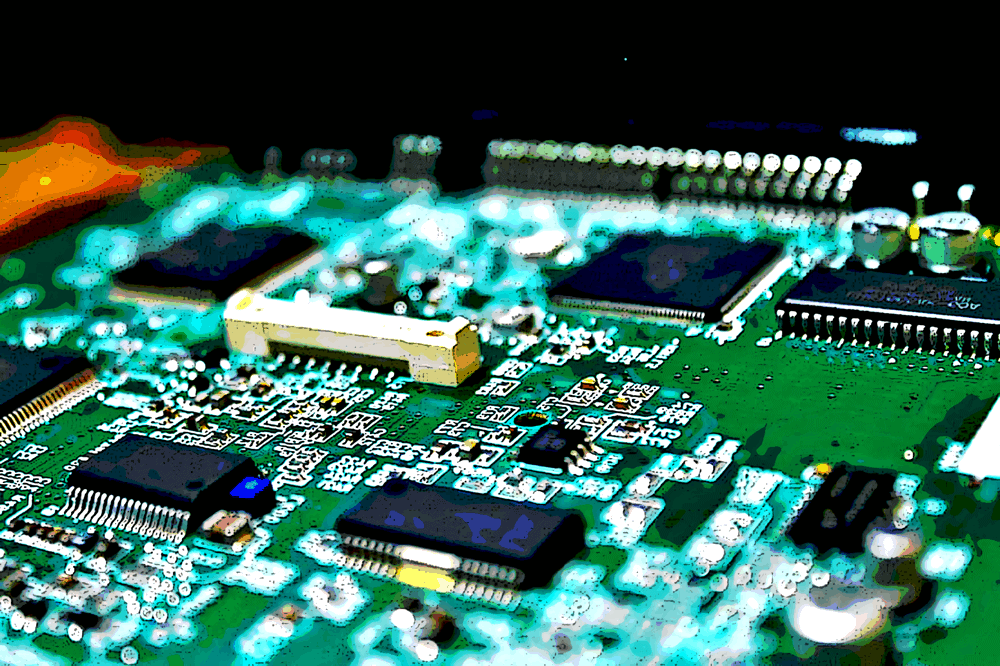News that the White House is considering adding China’s Semiconductor Manufacturing International Corp. (SMIC) to the Department of Commerce’s “entity list” of sanctioned firms — thus cutting it off from the American supply chain of equipment used in its factories — has sent its stock plummeting and has also threatened the potential for China’s bitcoin miners to source their silicon domestically.
SMIC is a semiconductor foundry: a chipmaker that under contract produces silicon for electronics companies. As of now, Taiwan’s TSMC and South Korea’s Samsung Foundry are the market leaders in this field and many of China’s consumer electronics heavyweights like Huawei have these firms produce chips for their products. China has plenty of its own semiconductor foundries, but as of now these lag generations behind in key technology called the “process node” to those in Taiwan and South Korea.
Within China, there’s a huge sense of urgency in having local firms play catchup. A world class domestic semiconductor firm has long been a target of Beijing’s “Made-in-China 2025 plan” but an extra sense of urgency has been in the air after TSMC accepted a contract kill order from the US government earlier this year in exchange for remaining compliant with the export terms of the American-made equipment that powers its factories. To fund research to catch up to the likes of TSMC, SMIC kicked off the biggest share sale in a decade on the domestic Chinese markets raising a record $7.5 billion.
It’s no secret that Chinese semiconductor fabrication plants are heavily dependent on U.S. equipment in their manufacturing process. According to research done by Guangzhou-based brokerage GF Securities, 35% of the equipment used within China’s semiconductor manufacturing sector comes from the U.S., and another 32.8% is from Japan.
The foreign origin of this core equipment is in turn a powerful weapon for the U.S. As this equipment is sensitive in nature, it requires an export license. Export licenses cannot be obtained to send equipment to firms that are sanctioned.
Bitcoin miners caught in the crossfire
At the heart of every bitcoin miner is something called an “application-specific integrated circuit,” or, ASIC. These are custom silicon chips designed by the specific bitcoin miner manufacturer and produced by the semiconductor fab under contract. ASIC mining is a must for bitcoin, as the difficulty level is such that it’s the only way to do it while remaining efficient.
Contract semiconductor manufacturing is a very secretive business, and no company is going to comment or name their clients — aside from disclosing the revenue generated from the sector.
A July 2020 paper from Elwood Asset Management shows that their research indicates that TSMC and Samsung “dominate the chip supply market” with TSMC generating $350 to $400 million, or 5% of the company’s total sales in a single quarter, with Samsung coming in not far behind it. Elwood’s research shows that Samsung supplies MicroBT, Ebang and Innosilicon while TSMC is believed to supply Bitmain and Canaan (which has been confirmed by other media reports).
Both Bitmain and Canaan buy from TSMC because it’s the only company that can supply them with chips made at the 5 nanometer (nm) process node — the same technology Apple requires for its iPhone. Samsung is currently able to supply its companies with chips made at the 10 nm process, but is hard at work on a 3 nm process that is said to have 33% better performance than 5 nm semiconductors and would be a key asset for any bitcoin mining company looking to bolster its hash rate.
China’s SMIC lags behind
In contrast, China’s SMIC only built a facility capable of producing 14 nm chips this past May to supply Huawei with its Kirin 710 A processor, used in its second-tier phones. Huawei would like SMIC to have the ability to produce the Kirin 970 processor, used in its flagships, which is currently fabricated with TSMC — the trade link is soon to be cut off, meaning Huawei will be out of stock once it works through its supply. Should SMIC be unable to obtain key equipment due to U.S. sanctions, all bets are off that it would be able to catch up to its Taiwanese and South Korean competitors.
This is all going to be tough on bitcoin mining manufacturers, which are nearly universally China-based. Trade wars mean more tariffs, obtaining this silicon from South Korea or Taiwan would get more and more expensive. Sourcing it domestically from SMIC would be a challenge given that it, too, is a victim of trade wars. Routing silicon through Hong Kong may be an option, as it usually has advantageous trade deals with all sides. But with the city’s continued loss of autonomy, its economic and international trade advantages may not be an option for much longer. So what’s the industry to do? Move manufacturing to Taiwan?

